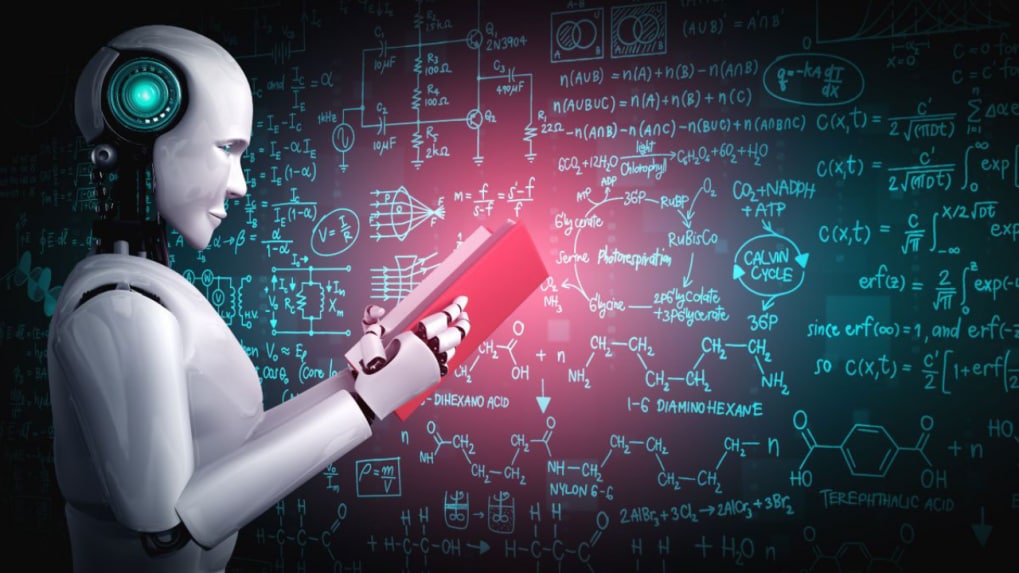How it Works
WPP, Havas, Omnicom: Are advertising’s biggest holdcos recasting agencies as AI Operating Systems?

The world of Artificial Intelligence has only begun to affect human lives. In times like these, staying up-to-date with the AI world is of utmost importance. Storyboard18 brings you the top AI news of the day.
Elon Musk's Neuralink patient signs her name using only thoughts after 20 years
A single signature — scribbled across a digital screen — is making waves across the internet. But it wasn’t just any signature. For Audrey Crews, it was the first time in two decades that she had written her own name. And she did it using only her thoughts.
The remarkable moment was made possible through Neuralink, Elon Musk’s brain-computer interface company. Audrey, one of the company’s early human recipients, posted a photo on X (formerly Twitter), showing her name written on a laptop screen. The caption read -
“I tried writing my name for the first time in 20 years. I’m working on it. Lol #Neuralink.”
The post was soon picked up by other users, one of whom highlighted “Neuralink recipient writes her name for the first time in 20 years telepathically.” Musk himself responded to the viral post, confirming the technology’s success and underlining its potential.
‘Godfather of AI’ calls out tech giants for downplaying risks
Geoffrey Hinton, widely recognized as the “Godfather of AI” for his pioneering work in neural networks, has issued a fresh warning about the dangers of unchecked artificial intelligence—and taken aim at the tech elite for failing to act responsibly.
Speaking on the One Decision podcast, which aired on July 24, Hinton claimed that while many employees within large tech firms are aware of AI’s potential risks, there is little being done to mitigate them.
“Many of the people in big companies, I think, are downplaying the risk publicly,” he said, suggesting that profit and power may be taking precedence over long-term safety concerns.
However, there is one notable exception, according to Hinton: Demis Hassabis, CEO of Google DeepMind.
“Demis Hassabis, for example, really does understand about the risks, and really wants to do something about it,” he said.
Gujarat approves 5-year action plan to integrate AI in governance
In a major step toward digital transformation, Gujarat Chief Minister Bhupendra Patel has given the green light to the state's comprehensive Action Plan for Artificial Intelligence Implementation (2025–2030). The initiative charts a roadmap for weaving AI into the state’s governance fabric over the next five years, with a focus on enhancing service delivery, streamlining administration, and embedding AI tools across vital sectors including healthcare, education, agriculture, and finance.
This strategic push is closely aligned with both Viksit Gujarat@2047 and the national Viksit Bharat@2047 vision under Prime Minister Narendra Modi’s leadership, as highlighted in a report by The Hindu.
Developed by the Department of Science and Technology with input from a specially appointed 10-member AI Taskforce Committee, the action plan will help equip various government departments with AI capabilities. It’s also intended to support the Union Government’s broader ambitions to integrate AI into public policy, administrative processes, and digital infrastructure.
China proposes global AI governance body amid tech rivalry with US
In a bold move to shape the future of artificial intelligence, China has proposed the formation of a global AI cooperation organisation, signalling its ambition to take a leading role in international tech governance. The announcement came at the opening of the World Artificial Intelligence Conference (WAIC) in Shanghai, where Chinese Premier Li Qiang addressed rising concerns around fragmented AI regulation and technological inequality.
“Global AI governance is still fragmented,” Li said, highlighting the wide disparity among nations in regulatory thinking and institutional frameworks. “We should strengthen coordination to form a global AI governance framework that has broad consensus as soon as possible,” he added, without directly naming the US but clearly alluding to what he described as “technological monopolies” and export restrictions that risk turning AI into “an exclusive game for a few countries and companies.”
UN tech chief urges global AI regulation amidst fragmented approaches
The world stands at a critical juncture for artificial intelligence, and a unified global approach to its regulation is desperately needed, warned Doreen Bogdan-Martin, head of the UN's International Telecommunications Union (ITU) agency, this week. She fears that a fragmented regulatory landscape could exacerbate risks and deepen existing inequalities.
Speaking to AFP, Bogdan-Martin expressed optimism that AI "can actually benefit humanity." However, with escalating concerns over potential mass job losses, the proliferation of deepfakes and disinformation, and the potential fraying of societal fabric, she stressed that regulation is paramount. "There's an urgency to try to get... the right framework in place," she stated, emphasizing the necessity of "a global approach."
Her call comes just after US President Donald Trump unveiled a new, aggressive, low-regulation strategy aimed at cementing American dominance in AI over rivals like China. Trump's plan includes over 90 proposals, notably advocating for widespread deregulation to "remove red tape and onerous regulation" that could impede private sector AI development. When pressed on her concerns regarding this less-is-more approach, Bogdan-Martin refrained from direct comment, indicating she was "still trying to digest" the US plan.
From purpose-driven work and narrative-rich brand films to AI-enabled ideas and creator-led collaborations, the awards reflect the full spectrum of modern creativity.
Read MoreThe Storyboard18 Awards for Creativity have unveiled a Grand Jury comprising some of India’s most influential leaders across advertising, business, policy and culture, positioning it among the country’s most prestigious creative award platforms.